Menu
The macula refers to the part of the retina in the back of the eye that helps you process images with your naked eye.
AMD occurs when the retina is depleted of much-needed nutrients. Abnormal protein deposits (dry AMD) or blood vessels (wet AMD) can form under the macula, both of which can result in vision loss.
At We Care Eye Group, we’re here to provide eyecare solutions for AMD.

Sobering Fact: Age-related macular degeneration (AMD) is the leading cause of vision loss for adults aged 50 and over.
(Source: American Academy of Ophthalmology (AAO), 2022)
AMD occurs when the retina is depleted of much-needed nutrients. Abnormal protein deposits (dry AMD) or blood vessels (wet AMD) can form under the macula, both of which can result in a gradual or sudden loss of ability to see objects and colors.
Patients with AMD often mention that their vision is distorted or blurry — and dark or empty spots appear in the center of their vision.
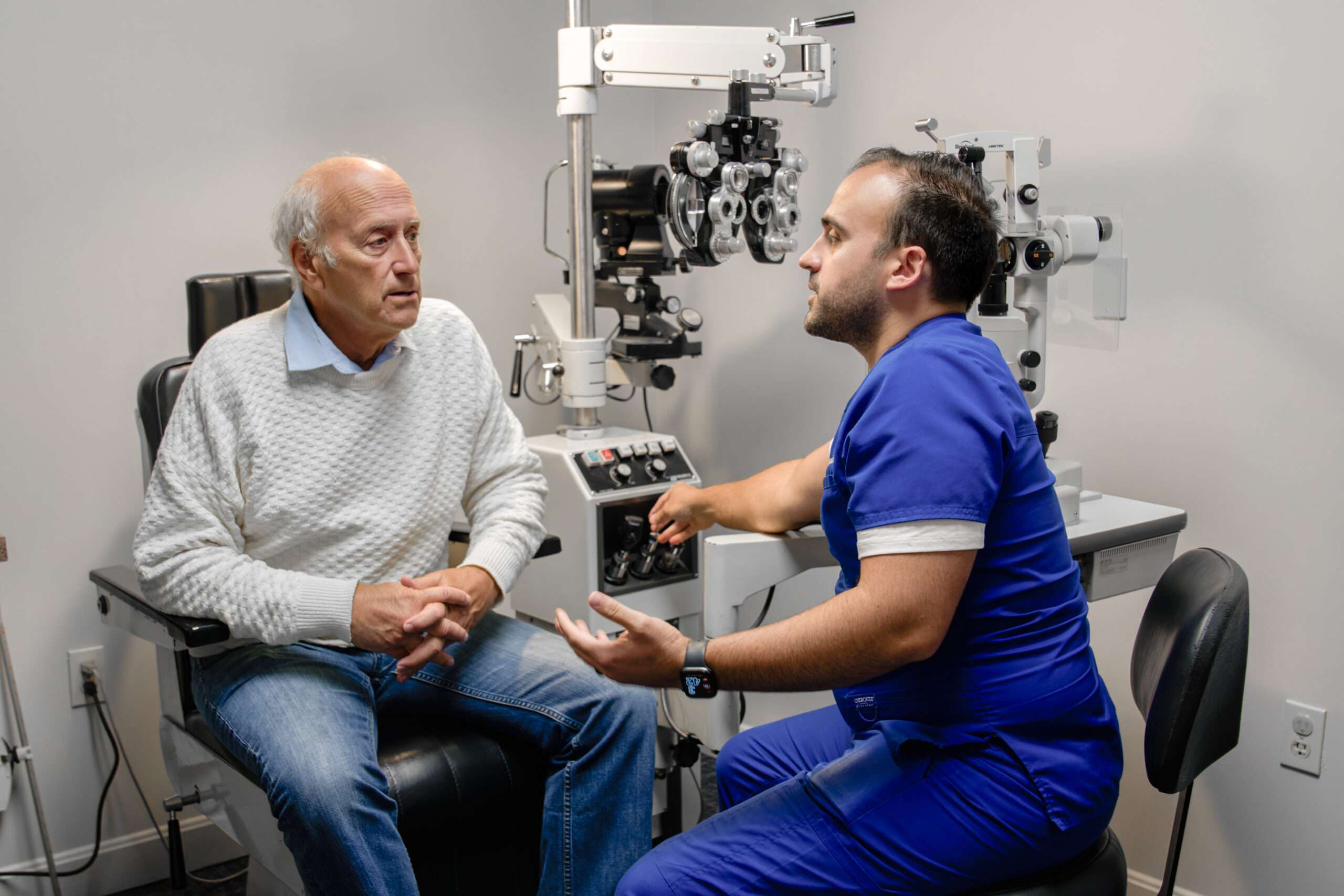
Dry (also called non-neovascular) age-related macular degeneration progresses more slowly, is more common, and is less severe than wet AMD. Dry AMD is characterized by a thinning of the retina, loss of pigment in the eye, and increased formation of round particles inside the retina (called drusen).
About 10% to 15% of people experience the less common, but more severe, version of AMD called Wet AMD. Wet AMD occurs when the eye tries to heal blocked arteries in the eyes. Wet AMD is characterized by blood vessels growing in the retina. If you have Wet AMD, the blood vessels often leak, leaving scar tissue on the retina and a permanent dark spot in your vision.
“That’s just part of growing older,” people often say. But aging doesn’t need to be characterized by vision loss.”
See below the symptoms of AMD.

Fact: A diet rich in antioxidants and zinc, certain medications, and a therapy plan may delay or prevent AMD from advancing.
(BrightFocus® Foundation, 2023)
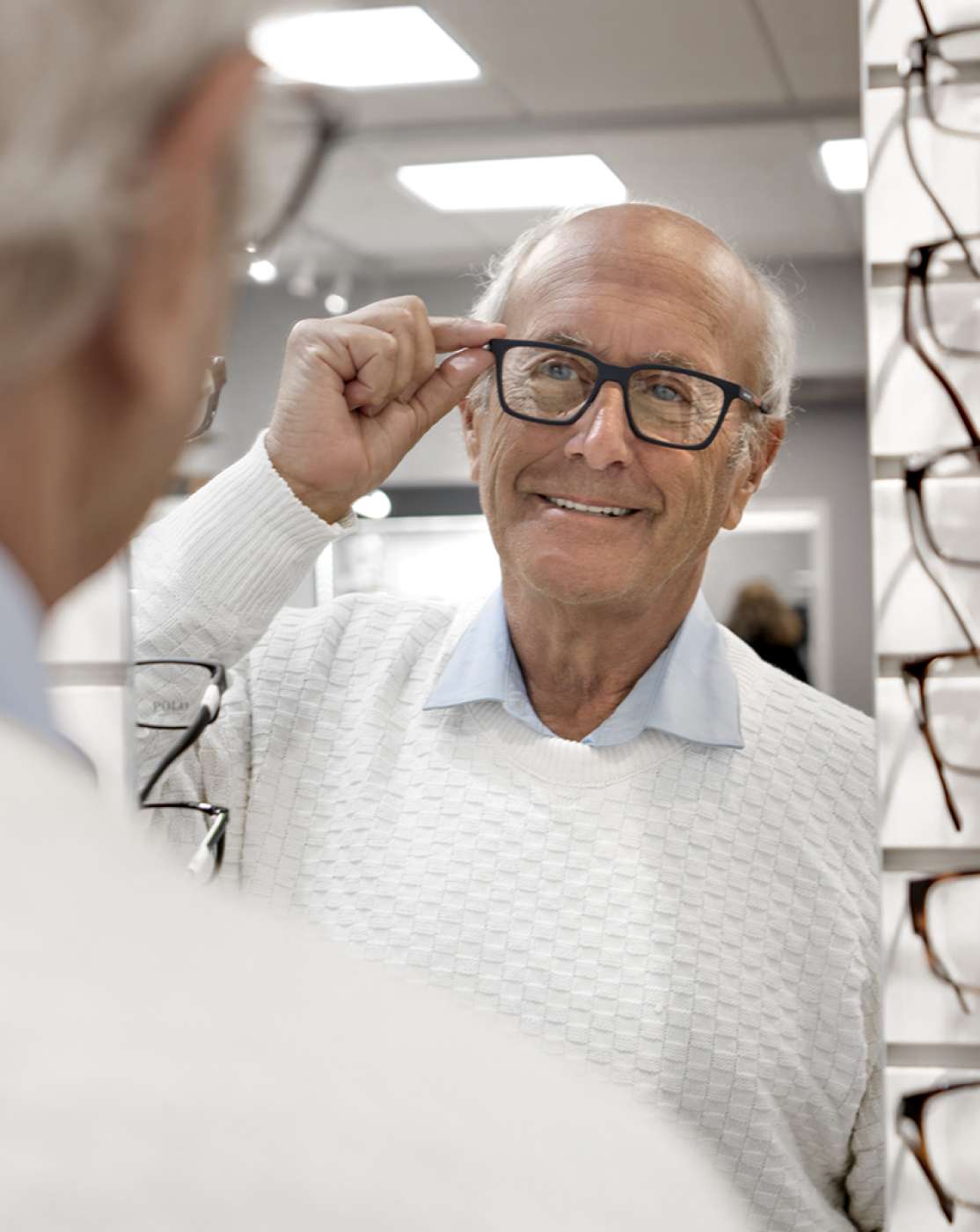
When seeking out treatment for age-related macular degeneration, your eye doctor will likely ask you if you have a health history of the following:
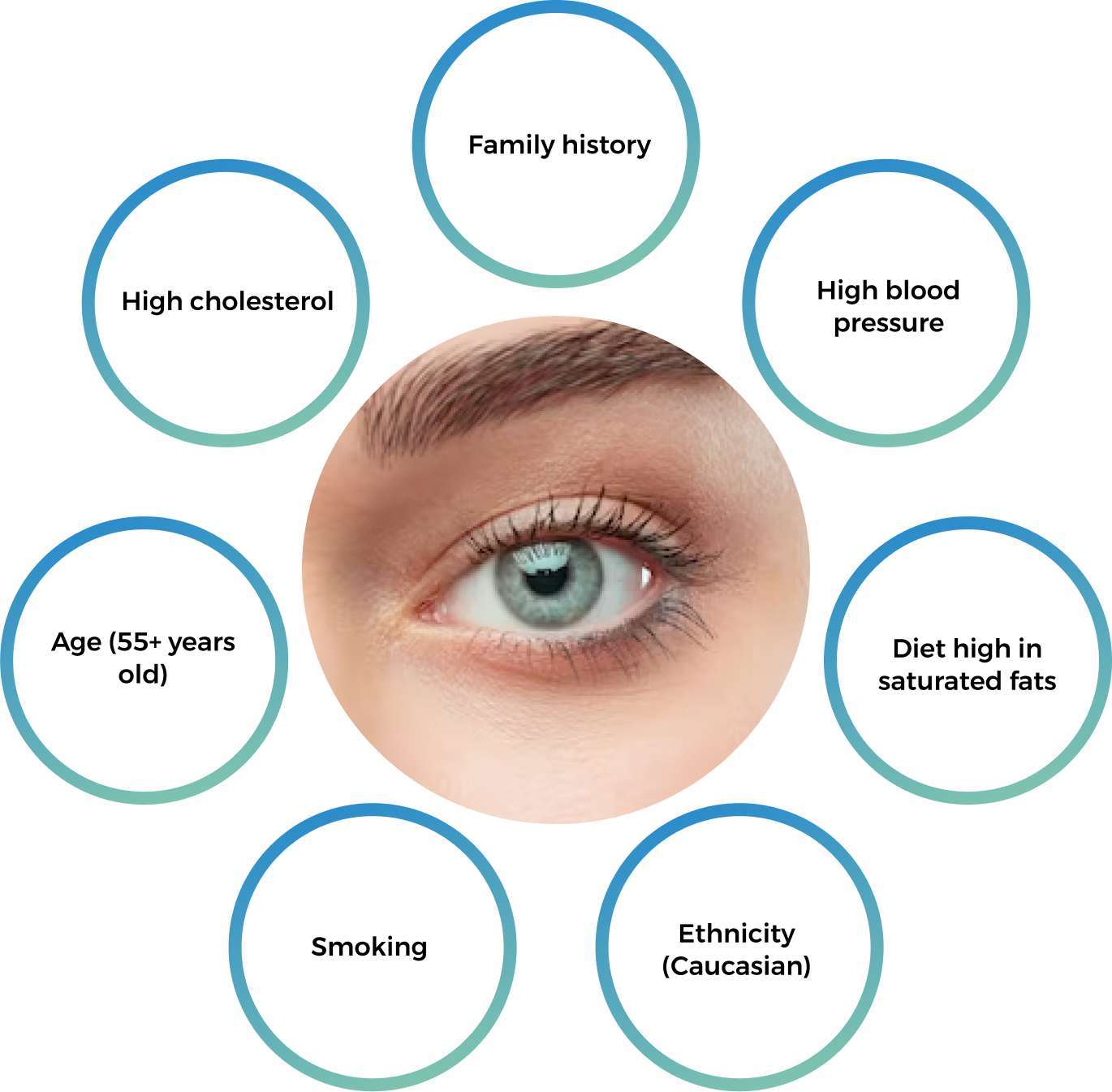
You can take steps to improve your eye health by practicing the following: eating a diet rich in antioxidants and zinc, exercising regularly, refraining from smoking, and protecting your eyes from overexposure to UV light. These tips can set you up for success in preventing and/or managing dry and wet AMD.
Your optometrist can assess if further evaluation or treatment by a retinal specialist is necessary. Our team will coordinate this process, and follow-up care will be scheduled accordingly.

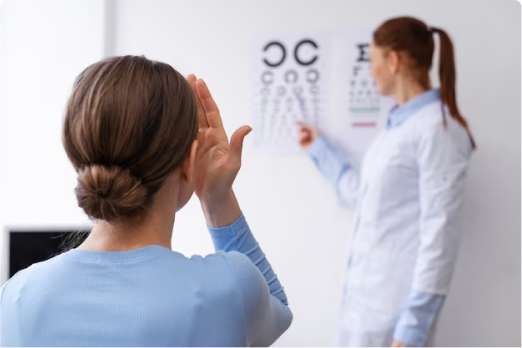
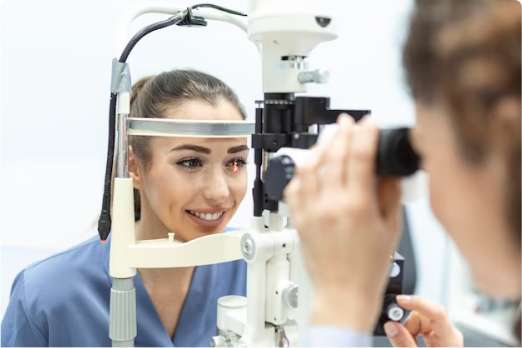

Our WeCare optometrists have nearly 40 years of experience working with adults and families. Our optometrists are trained in and have extensive background knowledge on ocular care. We treat each patient with compassion, kindness, and warmth.
Coupled with our friendly patient navigator team, our optometrists will carefully consider your comfort every step of the way. We encourage you to let our team know how you’re feeling throughout the exam process.
Whatever your vision care needs may be, our doctor and patient navigator team is dedicated to providing you with nothing less than the best optical care, because at the end of the day, our vision is to help you with yours.
A Family-Focused, Community-Centered Eye Clinic
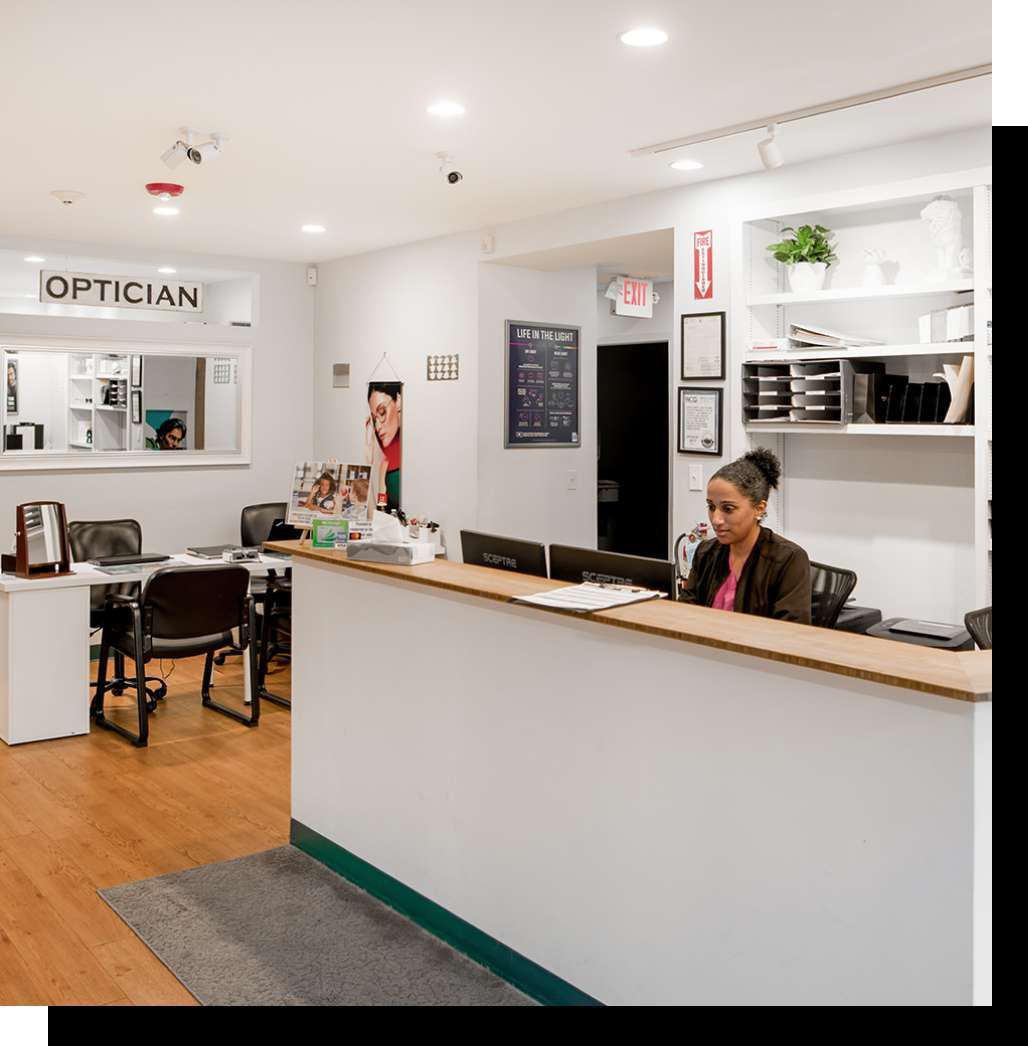

“I brought my mom here for an urgent visit. She had a vitreous detachment. They got us in within an hour, were super friendly, and the doctor was extremely thorough and explained everything really well. While we weren’t there for glasses, my whole family plans on making appointments for regular eye care here. They had a really unique stock of glasses and sunglasses.”
Michaela R.
Google Verified Review

“Honestly, this was the single best eye appointment I’ve ever had. I wore glasses as a kid, hated it, and avoided the eye doc as an adult. At College Hill, I felt like I was the only human on earth that mattered to them. My doc explained the process along the way. I’d recommend him and the practice to everyone! It was a real “human” experience. I’m grateful for that.”
Elise S.
Yelp Verified Review

“They were simply the kindest. I had a friend who came over from overseas, and her glasses broke — it was missing a small screw. They were very efficient and kind, and we were very satisfied with the experience. I definitely recommended this place to my friends and neighbors. If you’re looking for a good optics place in PVD, this is it!:)”
Ri C.
Nice Local Verified Review

“I love this place. I’ve been going here since I was a child. I never wait too long to be seen. I am always being treated with respect by all the staff, and you guys have a great selection of eyewear!!”
Jazarae L.
Google Verified Review

“I have been going to this place since I was a child and returned as an adult. The experience was even better than I could remember. I enjoyed the new technology and fast service. The ladies are very helpful. I got my glasses in my fast and they were able to modify my fitting. I love my new glasses. I can see so much better. Thank you all for your help!”
Limarys N.
Google Verified Review
Discover what WeCare’s Providence, RI optometrists can do for you! You won’t believe your eyes..